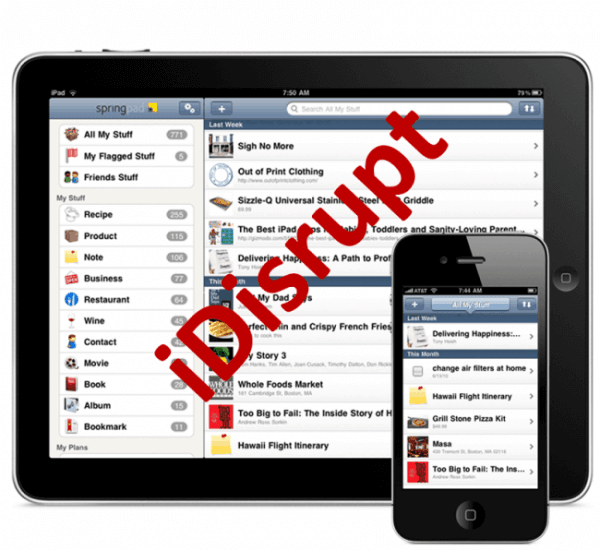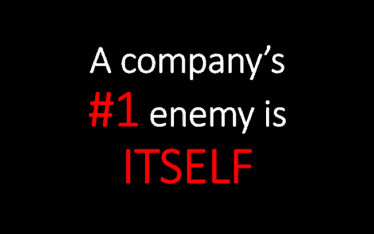The danger of complacency
Avoid an organizational monoculture
Many companies as they get larger tend to get into a monoculture mentality – but living in a bubble is one of the biggest mistakes executives can make. Why? Because one of the surest ways of losing touch with real customers’ needs and getting outsmarted by competitors is to enforce a monoculture in your organization, where competitive products are banned and employees only come into contact with your own offerings.
Living in a bubble is one of the biggest mistakes executives can make
In a talk to employees, former Nokia CEO Stephen Elop asked a question that many were probably afraid to answer truthfully, given how Nokia is struggling to combat the iPhone. When he asks how many people in the crowd use an iPhone or Android device, few hands go up:
That upsets me, not because some of you are using iPhones, but because only a small number of people are using iPhones. I’d rather people have the intellectual curiosity to understand what we’re up against.

This is refreshing statement – many executives would have berated their employees for not keeping the faith while a company faced its biggest crisis. Nokia CEO Stephen Elop is faced with a lot of challenges – changing old habits among employees are just one of them.
Don’t “contribute” to a organizational monoculture
As Apple launched the iPhone a couple of years ago Microsoft CEO Steve Ballmer was laughing about the launch in an interview with CNBC :
Five hundred dollars? Fully subsidized with a plan? That is the most expensive phone in the world. And it doesn’t appeal to business customers because it doesn’t have a keyboard, which makes it not a very good e-mail machine
Two years later, the iPhone is a huge success and has much more market share than Microsoft in the smartphone segment.
I fully recognize that Steve Ballmer isn’t going to say Microsoft’s products “are not that good”. Part of his role is to help market his companies products so of course he should be publicly say they are good. But as CEO of a public company, he probably should have taken a more measured approach in his answers.
The dangers of falling into the trap of complacency
Ballmer could have taken a more diplomatic tone and said something more along the lines of “We recognize Apple as a strong competitor and industry leader like ourselves. We feel our years of experience in the smartphone industry and strong partnerships will continue to help us deliver great products to our customers and be successful in the industry. Competition is great for everyone and spurs innovation – so we look forward to seeing how Apple does. But I think we’re well positioned for the future”. Did Steve Ballmer that way “contribute” to a monoculture mentality in Microsoft?
In an interview with the Wall Street Journal, Sony Ericsson President and CEO Bert Nordberg made an interesting statement about the iPhone:
We should have taken the iPhone more seriously when it arrived in 2007
Short URL & Title:
Avoid an organizational monoculture — https://www.torbenrick.eu/t/r/qhd
Share it:
If you enjoyed this article, please take 5 seconds to share it on your social network. Thanks!








Monoculture? Comfortable? Perhaps publicly on message. But, privately acquiescent, uncomfortable, reluctantly remaining apolitical, zipping it before lipping it for job/promotion security. Does a monoculture only really exist in the minds of those in the C-suite?